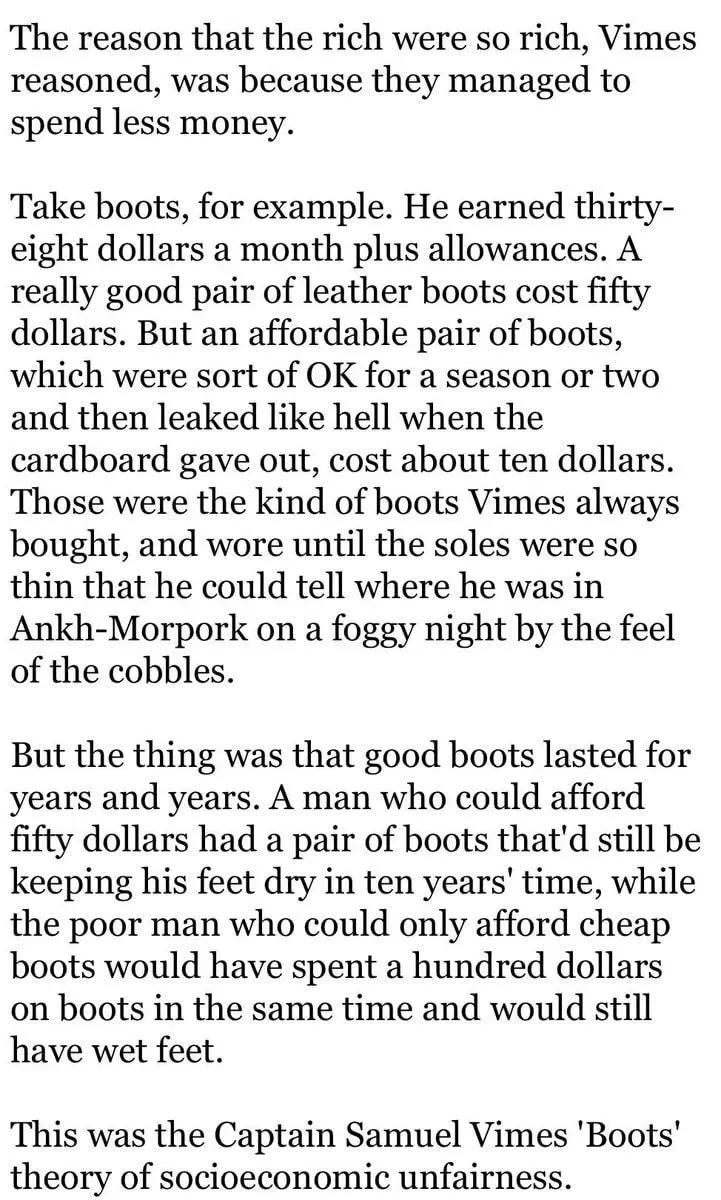Based on the excerpt from this Discworld book, what other items do you use regularly that would fit in this theory? (Boots and shoes are fair game!)
Text transcript for people who want it:
[The reason that the rich were so rich, Vimes reasoned, was because they managed to spend less money.
Take boots, for example. He earned thirty-eight dollars a month plus allowances. A really good pair of leather boots cost fifty dollars. But an affordable pair of boots, which were sort of OK for a season or two and then leaked like hell when the cardboard gave out, cost about ten dollars. Those were the kind of boots Vimes always bought, and wore until the soles were so thin that he could tell where he was in Ankh-Morpork on a foggy night by the feel of the cobbles.
But the thing was that good boots lasted for years and years. A man who could afford fifty dollars had a pair of boots that'd still be keeping his feet dry in ten years' time, while the poor man who could only afford cheap boots would have spent a hundred dollars on boots in the same time and would still have wet feet.
This was Captain Samuel Vimes 'Boots' theory of socioeconomic unfairness.]
Bonus: suggest ways you can repair/restore your item/other people's items.

The mushy flipflops!! I can't believe I forgot about those things. I had a pair as a gift when I graduated and they lasted me years. Once they died I wanted a new pair. Coughed up for the same brand and they.....leave weird black rubber bits on everything.